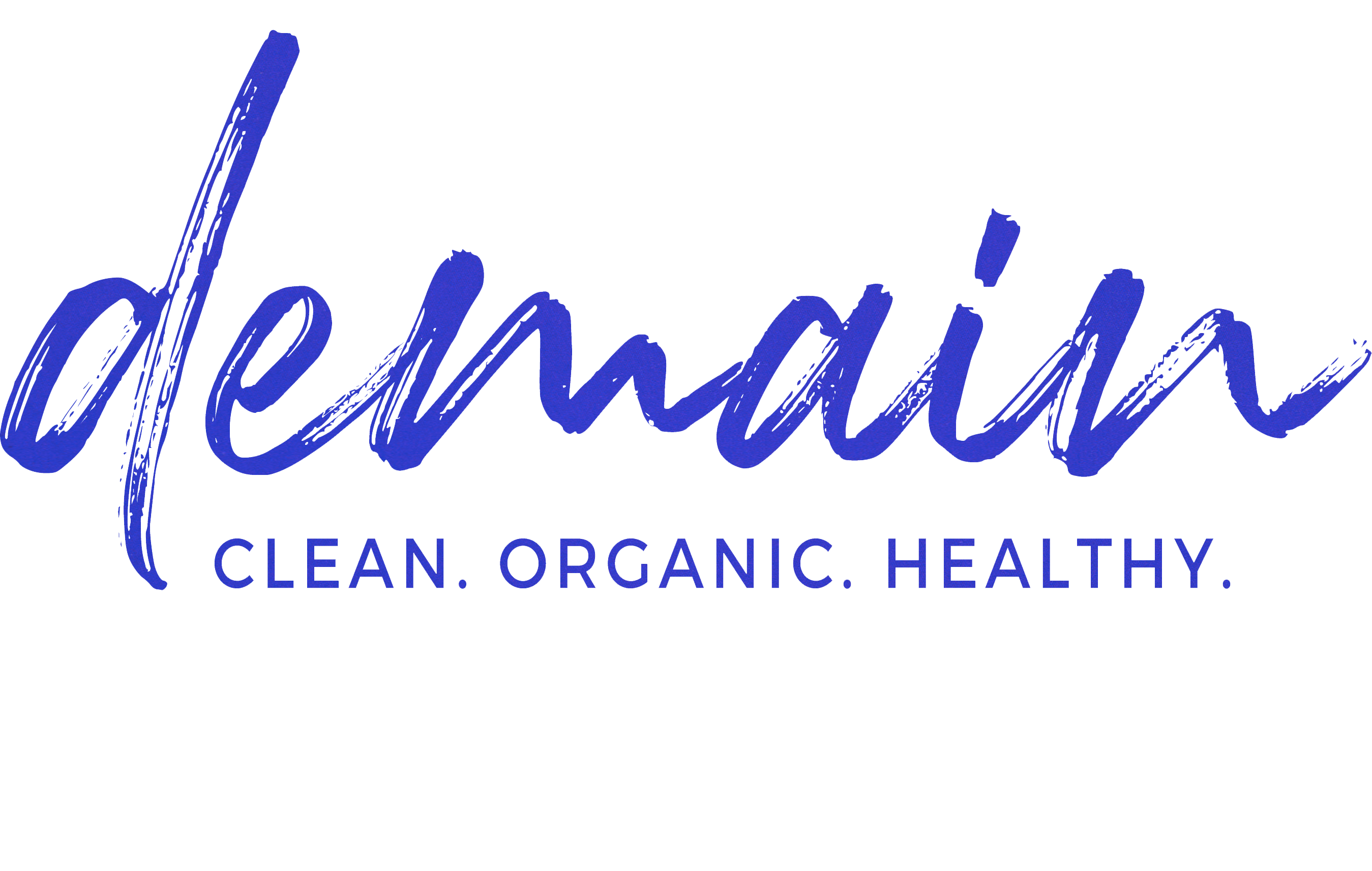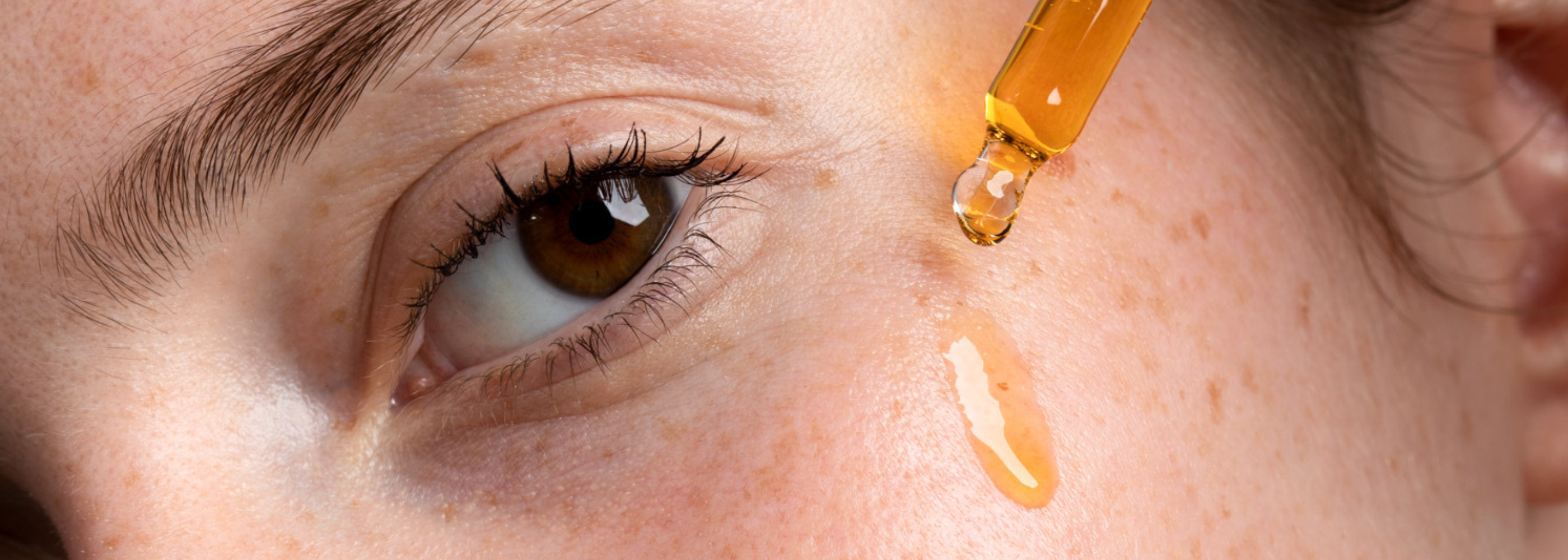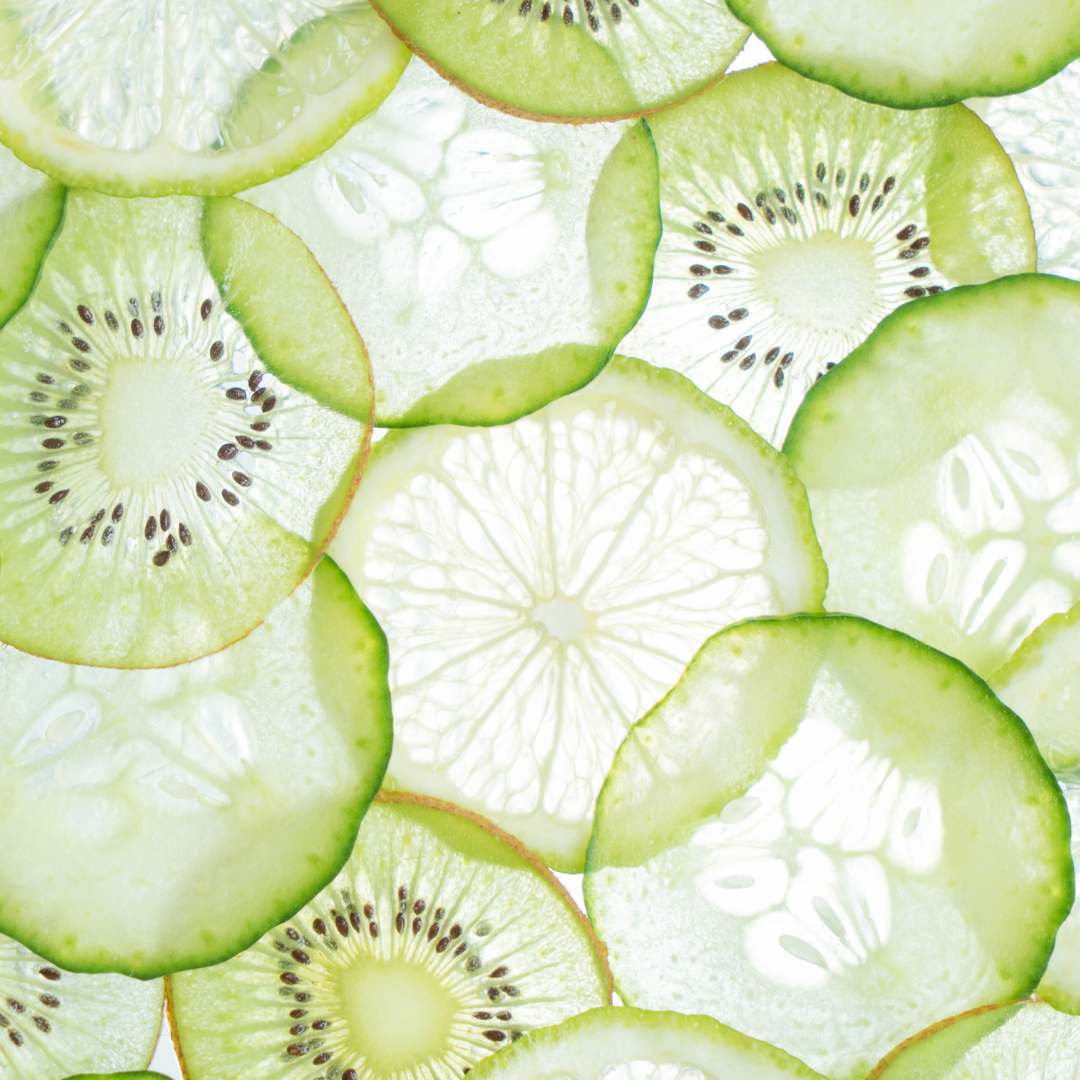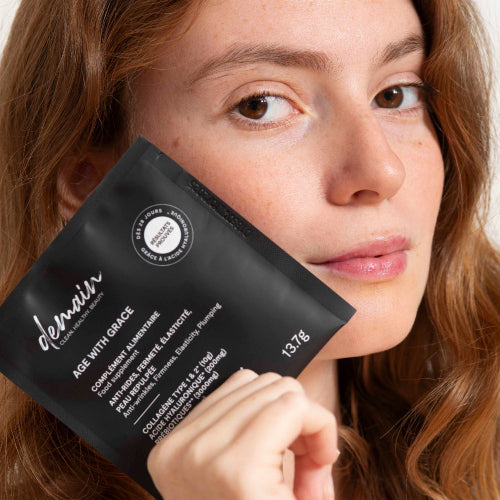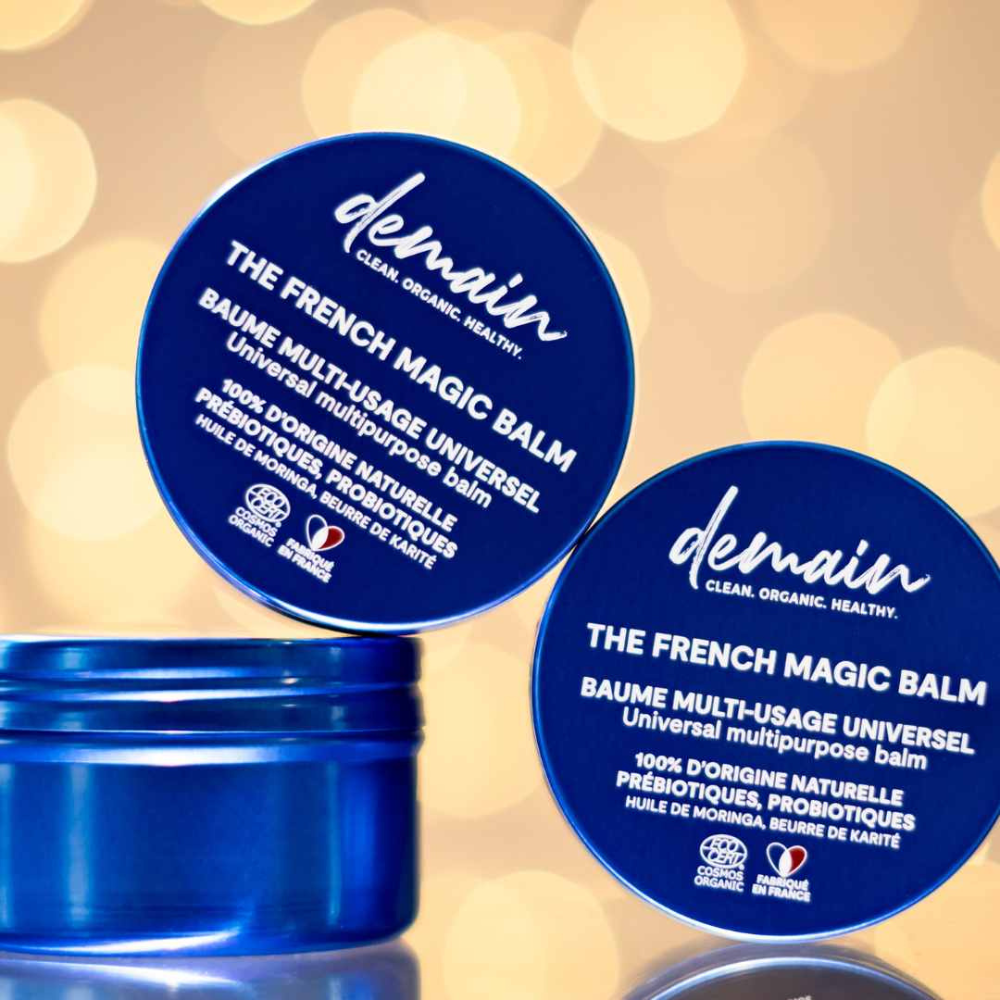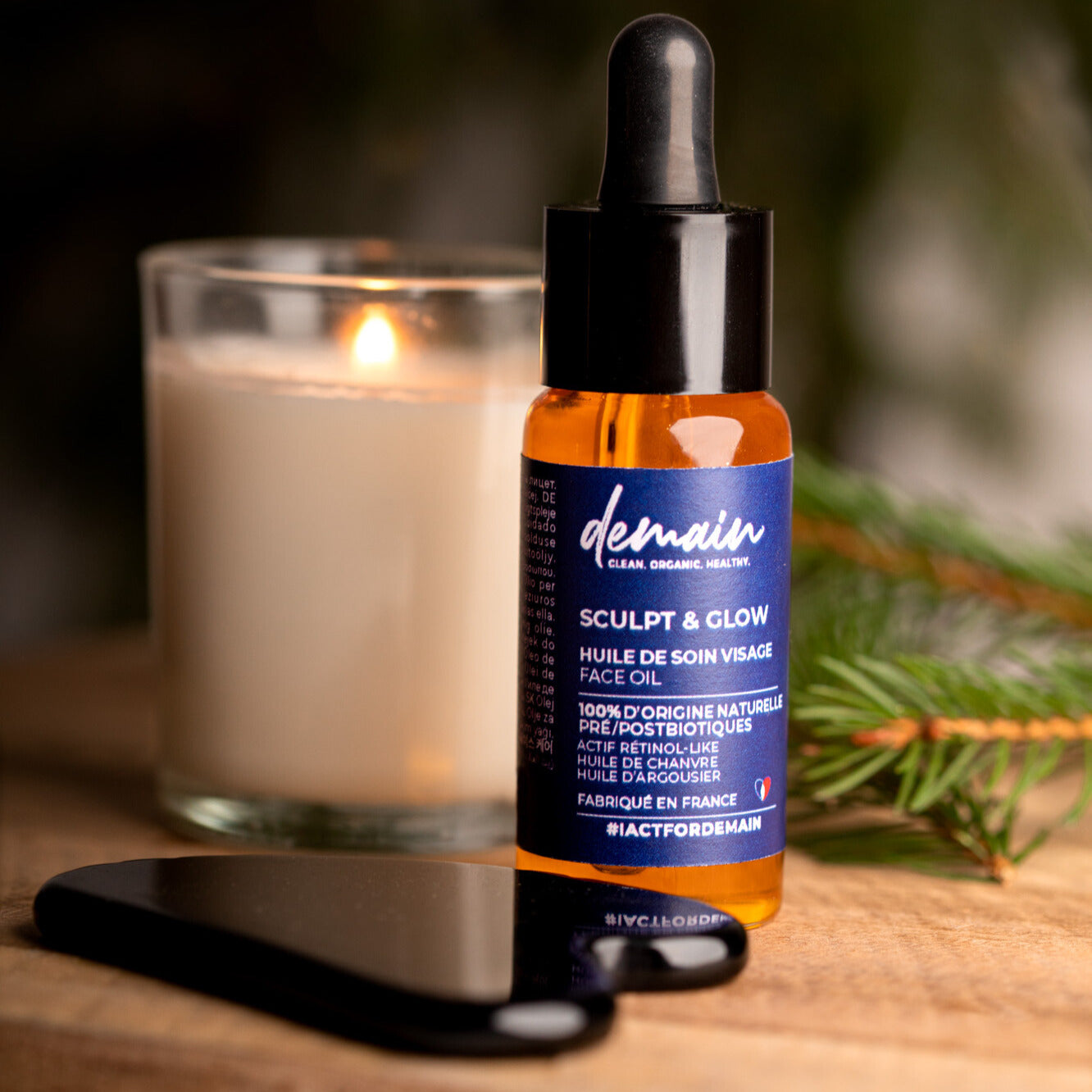Taking care of your skin isn't just about creams and lotions. Certain vitamins, available in supplement form, play a crucial role in achieving radiant skin. From vitamin C, known for its antioxidant properties, to vitamin A, which fights aging, to vitamin B5, which hydrates the skin, these nutrients are essential for beautiful, healthy skin.
Understanding the importance of vitamins for skin
Vitamins are valuable allies for the skin. Each vitamin has unique properties that contribute to the health and radiance of our skin. For example, vitamin A promotes cell regeneration, thus improving skin texture. Vitamin C, on the other hand, is a powerful antioxidant that protects the skin from free radical damage and promotes collagen production. B vitamins, especially B5, are known for their moisturizing properties.
These essential nutrients can be incorporated into our beauty routine in a variety of ways. They can be consumed through food, but they can also be applied directly to the skin through vitamin-enriched cosmetic products. Depending on each person's skin type and specific needs, some vitamins will be more beneficial than others.
It is also possible to use dietary supplements to provide our [body] with the necessary dose of vitamins. However, it is essential to choose quality supplements adapted to our specific needs. This is why it is recommended to consult a healthcare professional before starting vitamin supplementation.
In short, vitamins are a real boost for our skin. They contribute to its hydration, protection, and regeneration, while promoting its radiance and beauty.
Essential vitamins for healthy skin
In addition to the vitamins already mentioned, other nutrients play an essential role in skin health. Vitamin D , for example, helps regenerate skin and repair damaged tissue. It can be obtained through moderate sun exposure or through foods such as oily fish and eggs.
Also consider trace minerals like zinc, which is an antioxidant that helps fight acne and skin inflammation.
It is recommended to eat a balanced diet to provide your skin with all the nutrients it needs. Fruits and vegetables are particularly rich in vitamins and minerals that are beneficial for the skin.
Vitamin A: a protective shield for the skin
Vitamin A is a real boon for the skin. Rich in retinol , it has a remarkable effect on the epidermis. In fact, it acts as a protective shield by strengthening the skin barrier . This helps protect the skin from external elements such as the sun's rays or pollution.
Vitamin A also plays a key role in skin cell renewal. This process is vital for maintaining a healthy, youthful appearance . By stimulating the production of new cells, it helps fight signs of aging such as wrinkles and dark spots.
Finally, another notable benefit of vitamin A is its action on skin pigmentation . By regulating melanin production, it can help fade hyperpigmentation and improve skin tone evenness.
- Sources of vitamin A : Vitamin A is found naturally in a variety of foods, including dairy products, green leafy vegetables, and orange and yellow fruits. For those who have difficulty getting enough vitamin A through diet, dietary supplements may be an option.
- Topical use : Topical use of products containing vitamin A, such as serums and creams, can also benefit the skin. These products can help improve skin texture, reduce wrinkles, and lighten dark spots.
However, it is always recommended to consult a healthcare professional before starting vitamin A supplementation or using topical products rich in this vitamin, as excessive use can lead to adverse effects.
The role of vitamin A in the fight against aging
Vitamin A is known for its anti-aging properties. By acting on collagen production, it helps reduce the appearance of wrinkles and maintain skin elasticity. By stimulating cell renewal, it also helps maintain youthful, fresh skin.
Its role doesn't stop there. Vitamin A is also a powerful antioxidant. It fights free radicals, which are responsible for premature skin aging. This action helps prevent cell damage and maintain healthy skin.
- Anti-wrinkle action : stimulation of collagen production
- Cell renewal : helps maintain youthful skin
- Antioxidant : fights free radicals and premature aging
Ensuring a sufficient intake of vitamin A is therefore essential to combat skin aging and maintain healthy, glowing skin.
What dietary supplements can provide vitamin A to the skin?
To increase your vitamin A intake, several dietary supplements are available. Provitamin A, or beta-carotene , is an orange pigment found in carrots. Another source is cod liver oil , which is rich in vitamin A. Some supplements specifically target skin problems like acne, combining vitamins A, C, and E, along with zinc, which are known to regulate sebum production and reduce inflammation. For dry or oily skin, vitamin A supplements can help maintain healthy skin.
- Beta-carotene : converted into vitamin A by the body.
- Cod liver oil : natural source of vitamin A
- Specific supplements : for acne or skin problems.
Always consult a healthcare professional before starting any supplementation.
Vitamin C: a powerful antioxidant for the skin
How does vitamin C help brighten and rejuvenate skin?
Vitamin C, also known as ascorbic acid, works in a variety of ways to rejuvenate and brighten skin. For one, its antioxidant properties help protect the skin from damage caused by free radicals. Free radicals, produced by environmental factors such as pollution and UV exposure, can accelerate the skin's aging process.
On the other hand, vitamin C promotes the production of collagen , a protein essential for the structure and firmness of the skin. By stimulating collagen synthesis, it helps maintain skin elasticity and reduce the appearance of wrinkles. Good news! At Demain®, we have combined collagen with vitamin C for a double action. Thus, in a daily dose of the Age With Grace food supplement, you will find 10g of collagen and 100% of your recommended daily intake of Vitamin C.
Finally, vitamin C is known for its brightening properties. It helps reduce the production of melanin, the pigment responsible for skin color. By regulating the production of this pigment, it helps fade dark spots and even out skin tone for brighter skin.
Vitamin C in facial creams and serums
Vitamin C is commonly incorporated into facial creams and serums due to its many beneficial properties for the skin.
Its antioxidant role helps protect the skin against damage caused by free radicals and oxidative stress, helping to preserve its youthful and fresh appearance.
Additionally, vitamin C stimulates the production of collagen , a protein essential for skin structure and elasticity. This can help reduce the appearance of wrinkles and maintain firm, supple skin.
Additionally, vitamin C creams and serums can help brighten skin tone and make skin appear brighter. They can also be effective in fading dark spots and making skin tone more even.
However, it's worth noting that vitamin C can be irritating to some skin types, especially sensitive skin. Therefore, it's recommended to do a patch test before incorporating these products into your skincare routine.
Vitamin C Supplements: Are They Effective?
Vitamin C supplements are often touted for their potential benefits on overall skin health. However, their effectiveness depends on several factors. These include the quality of the supplement, the bioavailability of the vitamin C it contains, and the individual's overall diet.
Some sources indicate that most of the active nutrients in vitamin C from supplements can be destroyed by the digestive system, reducing their impact on the skin. This underscores the importance of choosing high-quality supplements and eating a diet rich in vitamin C.
It is also worth noting that vitamin C works synergistically with other nutrients, such as zinc , to protect cells from oxidative stress. Thus, a holistic approach that combines a balanced diet and judicious supplementation may be more beneficial for skin health.
Vitamin C supplements may be beneficial for:
- Cell regeneration
- Tissue repair
- Maintaining healthy skin
However, as always, it is recommended to consult a healthcare professional before starting any supplementation.
Vitamin B complex for balanced skin
Focus on vitamin B5: the ally of very dry skin
Vitamin B5 , also known as pantothenic acid , is a real treasure for very dry skin. It actively participates in the hydration of the epidermis by contributing to the repair of the skin barrier. This key role allows it to maintain the skin's hydration and protect it against external aggressions.
Vitamin B5 also has soothing properties. It can calm irritations and promote the healing of skin lesions. It is also involved in the metabolism of lipids, proteins, and carbohydrates, which are essential for skin health.
It is possible to benefit from this vitamin through a balanced diet, but also through topical treatments and food supplements.
Vitamin B1 and B6: Anti-acne weapons?
Vitamin B1 , also called thiamine, and vitamin B6 , or pyridoxine, have interesting properties in the fight against acne.
Vitamin B6 is often cited as beneficial for acne-prone skin. It helps regulate the secretion of sebum, an oily substance produced by the skin that, in excess, promotes the appearance of acne.
Vitamin B1, on the other hand, plays a role in repairing skin damage, and may therefore help reduce acne scarring.
These vitamins can be obtained through diet, particularly whole grains, green vegetables, meat, and fish. Dietary supplements can also be considered to ensure adequate intake.
B vitamins in food supplements: how effective are they?
Vitamin B supplements are well-known for their benefits for the skin. Specifically, they can help reduce dry skin, promote healing, and support the regeneration of new skin cells. However, their effectiveness depends on several factors.
The quality of the dietary supplement, its composition, the bioavailability of the vitamins, as well as the individual's overall diet are all elements that can influence the results.
It's also important to note that B vitamins work synergistically with other nutrients. For example, vitamin B6 helps regulate sebum secretion, which can be beneficial for acne sufferers.
However, as with any supplement, it is recommended to consult a healthcare professional before starting a course of B vitamins.
Vitamin E: A Natural Skin Moisturizer
Vitamin E and moisturizers: a winning combination?
The combination of vitamin E with moisturizers is often praised for its skin-loving benefits. Incorporated into many moisturizers, this vitamin is known for its nourishing and protective properties. In particular, it helps strengthen the skin barrier and maintain proper hydration.
Creams enriched with vitamin E are particularly recommended for dry and flaky skin, providing intense hydration. This vitamin has the ability to retain moisture in the skin, keeping it hydrated and supple.
Additionally, vitamin E is a powerful antioxidant. It provides protection against UV damage, thus limiting the risk of premature skin aging. This is why it is often found in sunscreens and anti-aging skincare products.
There are also night creams that contain vitamin E for restorative and nourishing action while you sleep. They help plump the skin and reduce the appearance of wrinkles.
To fully benefit from the benefits of vitamin E, it is recommended to apply the moisturizer to clean, dry skin, massaging gently in circular motions until completely absorbed.
Vitamin E intake through food supplements
Dietary supplements rich in vitamin E are an effective way to increase your daily intake. These supplements come in various forms: capsules, softgels, tablets, and even liquid. Vitamin E supplements promote the body's absorption of this essential vitamin.
Among the sources of vitamin E in dietary supplements is D-alpha-tocopheryl succinate. This is a form of vitamin E that is highly absorbable by the body and known for its increased stability. This formulation ensures optimal absorption of vitamin E.
Benefits of Vitamin E Supplements:
- Ease of use and precise dosage
- Optimal absorption by the body
- Possibility of supplementing a diet deficient in vitamin E
- Skin protection against oxidative stress
However, as with other vitamins, excess vitamin E can cause adverse effects. Therefore, it is important to follow the recommended dosages and consult a healthcare professional before starting a supplement.
Zinc: an essential mineral for beautiful skin
The role of zinc in skin health
Zinc is a mineral that plays a major role in skin health. Its antioxidant properties help fight skin aging. Additionally, zinc promotes healing, which is particularly beneficial for skin prone to conditions like acne or psoriasis.
Zinc also helps regulate sebum production. Sebum is an oily substance produced by the skin's sebaceous glands. Excessive sebum production can lead to oily, blemish-prone skin. Conversely, insufficient sebum production can lead to dry, irritated skin.
Finally, zinc helps strengthen the skin's natural defenses against external aggressions, including UV rays and pollution. It thus helps protect the skin from oxidative damage and maintain its radiance.
Zinc food supplements: for whom and why?
Zinc supplements can be beneficial for a variety of skin types. People with skin conditions such as acne or psoriasis may want to consider zinc supplementation for its healing and sebum-regulating properties.
Individuals with oily or blemish-prone skin may also benefit from these supplements, thanks to zinc's ability to regulate sebum production. Similarly, those with dry, irritated skin may benefit from zinc's ability to moisturize.
Finally, if your skin is often exposed to external aggressions (UV rays, pollution), supplementing with zinc can help strengthen its natural defenses. However, before starting a zinc supplement, it is recommended to consult a healthcare professional to assess your specific needs.
Choosing the right food supplement for your skin
Understanding the specific needs of your skin
Identifying your skin's specific needs is the first step in choosing the right vitamins. To do this, observing your skin is essential. Dry skin may require vitamin B5 for its moisturizing properties. If you suffer from acne, vitamin B1 and B6 can be helpful. For dull skin, vitamin C promotes radiance. Finally, to combat skin aging, vitamin A is preferred. It's essential to understand that each skin is unique and its needs can vary depending on various factors such as age, lifestyle, diet, and exposure to external aggressors.

